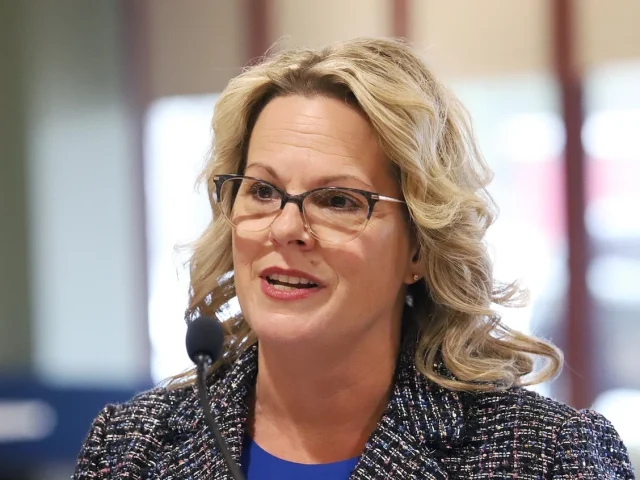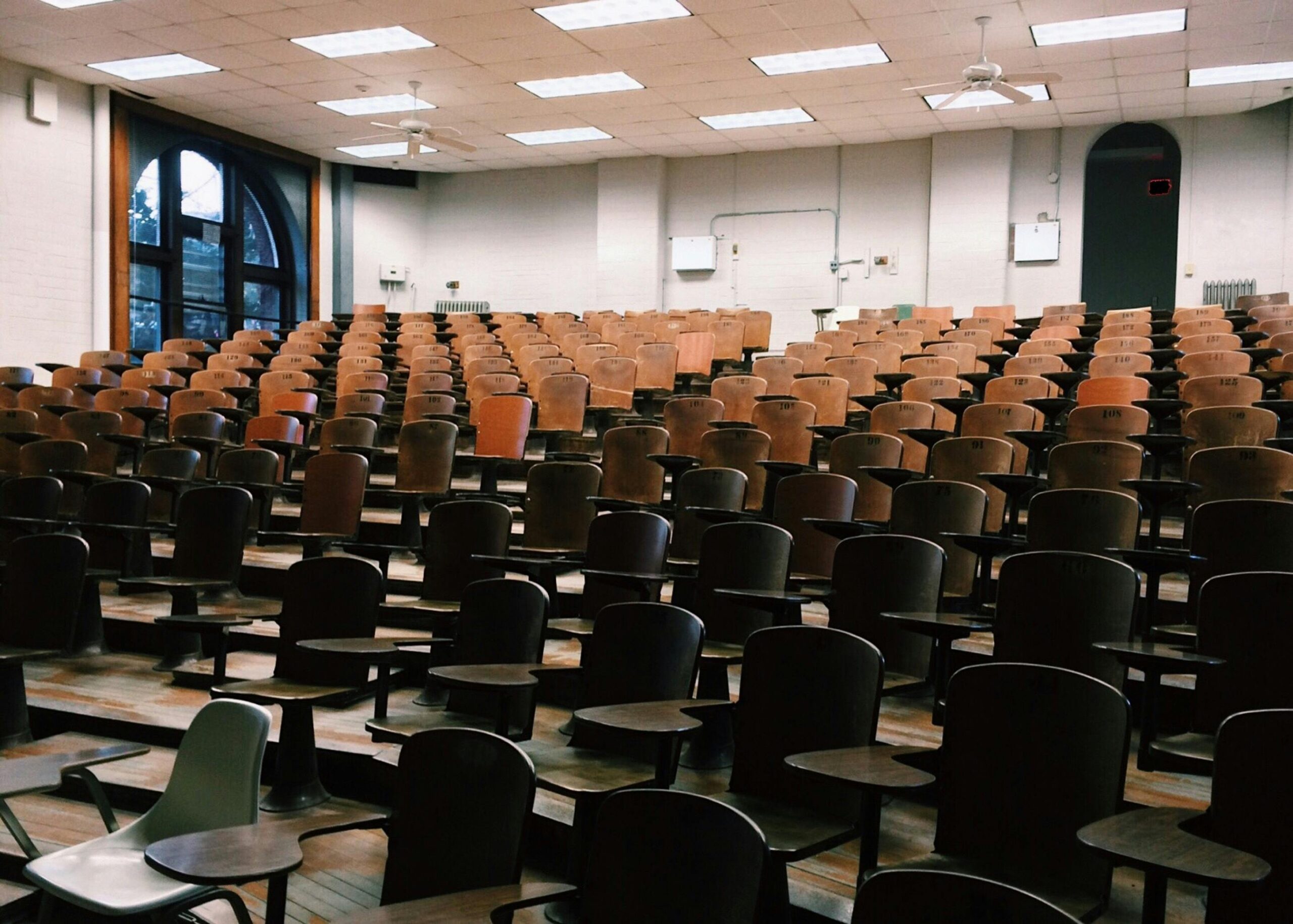Cambrian College could stand to lose upwards of $40 million in annual revenue once federal and provincial restrictions on international students are fully rolled out in the next two to three years, says the college’s president.
Cambrian has 3,148 international students at its Sudbury campus, and another 6,200 spread across two campuses in the Greater Toronto Area. A reduction in the intake of international students and government-imposed limitations to some of its program offerings will have a significant negative impact on the college — and Sudbury community at large — says Cambrian College president Kristine Morrissey.
Last week, Canada announced it would be reducing the number of new student visas by 35 per cent in response to a housing and health-care crisis, along with concerns about the quality of programming.
A few days after the federal announcement, the province said it, too, would introduce measures to protect students and improve the integrity of postsecondary education in Ontario.
Included in the provincial measures is a moratorium on new public-private partnerships, in addition to the federally imposed measure to stop issuing post-graduation work permits to those students.
These combined restrictions related to public-private partnerships will have a significant impact on Cambrian, which has a long-standing partnership with Hanson Canada to deliver programming to thousands of international students in the GTA, said Morrissey.
There, 6,200 international students attend one of two campuses, either in Brampton or North York.
Morrissey said that without a post-graduation work permit, those programs will have no value to international students.

“Cambrian was the first college in Ontario to come up with this innovative model, 18 years ago,” she said. “So, we have a very solid relationship with our partner. Over those years we’ve invested in that relationship, done a number of quality audits … it’s unfortunate we are getting painted with the same brush.”
Will affect Sudbury in other ways
Morrisey said that the revenue generated from the partnership comes back to the Sudbury community and Cambrian, helping it to modernize and expand.
“From a financial perspective the loss of that revenue stream is significant,” said Morrissey. “It was about $17 million last year and that would be an ongoing loss of revenue in our future, as a result of that one piece of the announcement.”
Morrissey said there was no consultation or notice about the cap on international students and details about how permits would be allocated.
The announcement has caused chaos, with students being turned away after paying tuition fees and making arrangements to start a new life abroad. Cambrian has six planned intakes of international students throughout the year: January, March, May, July, September and November.
“This is going to significantly impact the intake we had planned for March and May,” she Morrissey.
Additionally, according to Morrissey, the restrictions are not just a blow to the college but to the Sudbury community, too.
“If we end up having to turn down 1,000 or 1,500 international students, there’s going to be (fewer) students filling those part-time jobs,” she said. “You can see our students working in retail, tourism, and the restaurant industry. They are filling much-needed positions.”
As well, increasing the city’s population by immigration — and international students — is part of city council’s growth plan.
“If you look at the number of students who will be graduating and the reduction of those numbers to fill a much-needed labour market demand in the North, that is very problematic,” said Morrissey.
Another negative impact the college faces is about work permits that will no longer be issued to spouses of international students unless they are in a master’s or PhD program.
“This is so significant for Cambrian,” said Morrissey. “In the last five to seven years, we’ve been investing heavily in diversifying our enrolment from countries other than India so we were not economically dependent on one country. With most of those markets, the majority of those students are young families …
“If the spouse of a student is no longer eligible to work, I’m not sure how they will immigrate to Canada.”
Despite the impending financial hardship, Morrissey said that to date, the college has operated in a “very fiscally sustainable and conservative way.” In the coming budget, the college is not anticipating a deficit; however, it will take time and advocacy to develop a path forward.
“We can’t plan for the future until we know what we have to work with,” she said.
To help them cope with the impending loss of revenue, Ontario colleges are advocating that the province removes the tuition freeze and to impose a five per cent increase for domestic tuition and a 10 per cent increase in provincial grants.
Some taking a wait-and-see approach
Sudbury’s other post-secondary institutions are facing challenges, too, although it seems not to the extent, financially, that Cambrian predicts in the coming years.
Sudbury-based College Boreal operates 36 sites, including seven campuses (with one in Sudbury) located in 27 communities throughout Ontario and also offers 14 full programs online.
The college also has a large international student population. As of last week, the college had an enrolment of 2,100, of which 47 per cent are international students. Despite its large educational offering, the college has not entered into any public-private partnerships.
Boreal president Daniel Giroux is awaiting more details from both the federal and provincial measures, however, he issued the following statement:

“A number of uncertainties remain and it would be premature for our college to issue a categorical opinion on this issue,” Giroux said in the statement provided to The Star. “However, the role of French-language post-secondary institutions in linguistic minority situations is essential to the vitality of our communities, and is in line with the Policy on Francophone Immigration and its implementation plan – including a significant contribution to achieving a target of 8 per cent Francophone immigration annually – unveiled last week by Minister Miller.
“Ontario’s colleges also play a vital role in ensuring the availability of a skilled workforce that meets concrete and urgent needs in many fields, such as trades, early childhood and health. To deprive ourselves of new graduates in these sectors would exacerbate the shortage of qualified bilingual people, and would seriously compromise the sustainability of the French language in our regions.”
In reference to the provincial announcement, Giroux said the college supports the measures proposed.
“College Boreal supports the measures unveiled by the government of Ontario, and in light of the federal government’s recent announcements, we are also pleased with the importance accorded to Francophone communities,” he said. “However, with the 2024 recruitment season already underway, it remains important to act quickly to ensure the efficiency of the study permit application process.”
Laurentian University’s president and vice chancellor Shiela Embleton is also taking a -wait-and-see approach. The university issued the following statement on her behalf:
“We are interested to see how the province will allocate spaces for international students and until those details become clear, we would not be able to estimate the impact to Laurentian University. We look forward to working with both the federal and provincial governments as these policies unfold.
“At Laurentian, we see a greater percentage of our international student population at the graduate level, which is not affected by these changes. As of last year, Laurentian reached the provincial average of 17 per cent of the student population coming in as international students.”
______________________________
– Laura Stradiotto, Local Journalism Initiative Reporter, The Sudbury Star
The Local Journalism Initiative supports the creation of original civic journalism that is relevant to the diverse needs of underserved communities across Canada, broadening availability and consumption of local and regional news on matters of civic governance. Launched by the Government of Canada in 2019, the Local Journalism Initiative provides news organizations with funding to hire reporters to cover underserved communities.




